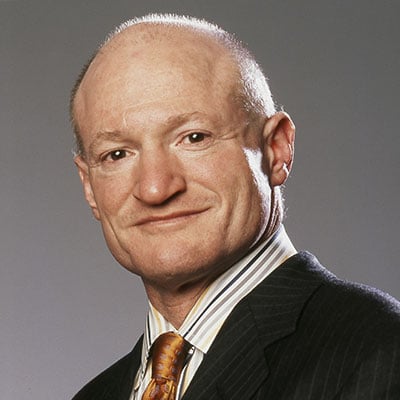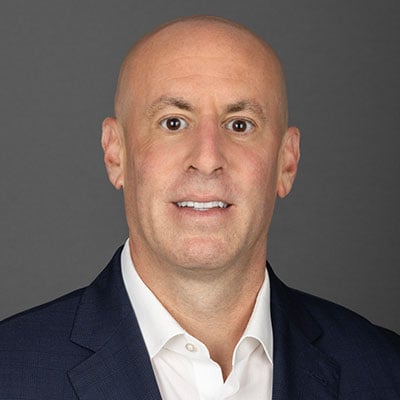LightSquared Begins Ch. 11 Trial With $400M Surprise
LightSquared Inc. flashed $400 million in new cash Monday to buy peace on a contested Chapter 11 exit strategy, but lawyers for Dish Network Corp. Chairman Charlie Ergen and other opponents showed no signs of backing off as a trial began on the high-stakes restructuring.
The surprise sweetened offer to creditors came as lawyers representing the wireless venture began pushing a reorganization plan that, if adopted by U.S. Bankruptcy Judge Shelley Chapman, would bring an end to one of the most conentious and expensive bankruptcies in recent memory.
LightSquared, the wireless venture backed by hedge fund magnate Philip Falcone, is trying to leverage favorable results from the federal government's recent wireless spectrum auction to exit Chapter 11 under a plan that values its business at $9.6 billion.
The new cash-out offer, announced before the trial commenced, would let certain prepetition secured lenders take up to $400 million in cash in lieu of the refinanced debt they had been offered under the plan. Two plan proponents, Fortress Credit Opportunities Advisors LLC and Centerbridge Partners LP, are excluded from the offer, meaning Ergen, LightSquared's fiercest opponent and largest single creditor, could receive a $320 million share of the cash pool.
Ergen is fighting for better terms on his $1.3 billion claim, which the plan would pay off with new junior debt while preserving a 44 percent ownership stake for Harbinger and handing the remaining equity in the reorganized LightSquared to Fortress, Centerbridge and SIG Holdings Inc.
Under that scenario, Ergen's investment vehicle SP Special Opportunities LLC would have limited control over how its loans were enforced and could be outvoted by other creditors if LightSquared wanted permission to take out more debt or pay dividends. LightSquared attorney Andrew Leblanc of Milbank Tweed Hadley & McCloy LLP said in opening arguments that the treatment of SPSO's debt was warranted when Ergen had sought to undermine the reorganization to squeeze out LightSquared, a potential competitor in the spectrum market.
"SPSO wins if they're successful in causing the liquidation of LightSquared," Leblanc said. "It's clear that they're going to do anything they can to win."
Trial on the debtor's plan is scheduled to last a week, possibly longer. Whether the plan treats creditors fairly hinges largely on how much LightSquared's valuable spectrum assets are worth, a tricky question when regulators have blocked its proposed nationwide network since 2012.
In her opening, SPSO's attorney Rachel Strickland of Willkie Farr & Gallagher LLP said the plan unfairly discriminated among creditors by swapping out SPSO's first-lien claim for new second-lien debt and subordinating that debt below a $1.75 billion working capital facility.
“Based on that, this should be over,” she said.
LightSquared’s valuation speaks directly to creditor recoveries — the stronger the company, the more debt it can support and the less pain for junior creditors and stockholders. Owners are normally wiped out in bankruptcy, but under LightSquared’s plan, some preferred stockholders would see a partial recovery.
Should Judge Chapman elect not to confirm LightSquared's plan, she could approve a rival strategy proposed by Solus Alternative Asset Management LP, a shareholder that wants to reshape the plan and take a controlling stake in exchange for providing extra bankruptcy financing.
The rest of Monday's trial revolved around the testimony of LightSquared CEO Doug Smith, who said he believed the Federal Communications Commission was waiting to act on LightSquared's spectrum licensing application until it sees what entity will own the reorganized company.
Falcone, who resigned from the LightSquared board last year, has long insisted that the company will be worth billions once it can license its spectrum, which he said would let it exit bankruptcy on its own as a viable business. The stalled licensing application was a big reason Judge Chapman denied a previous reorganization plan last year. Without certainty from the FCC, she said, the proposed plan to pay back Ergen over five years was unreliable, and in any event it treated him too poorly to pass muster.
That decision came after the judge found that Ergen's claim could be partially wiped out because of his stealthy acquisition of LightSquared's debt, which he did before anyone knew he controlled SPSO.
SPSO is represented by Rachel C. Strickland, Tariq Mundiya, James C. Dugan and Norman P. Ostrove of Willkie Farr & Gallagher LLP.
LightSquared is represented by Matthew S. Barr, Alan J. Stone, Michael L. Hirschfeld and Andrew M. Leblanc of Milbank Tweed Hadley & McCloy LLP. LightSquared’s special committee is represented by James H.M. Sprayregen, Paul M. Basta and Joshua A. Sussberg of Kirkland & Ellis LLP.
The case is In re: LightSquared Inc., case number 1:12-bk-12080, in the U.S. Bankruptcy Court for the Southern District of New York.
REPRINTED WITH PERMISSION FROM THE MARCH 9, 2015 EDITION OF LAW360 © 2015 PORTFOLIO MEDIA INC. ALL RIGHTS RESERVED. FURTHER DUPLICATION WITHOUT PERMISSION IS PROHIBITED



